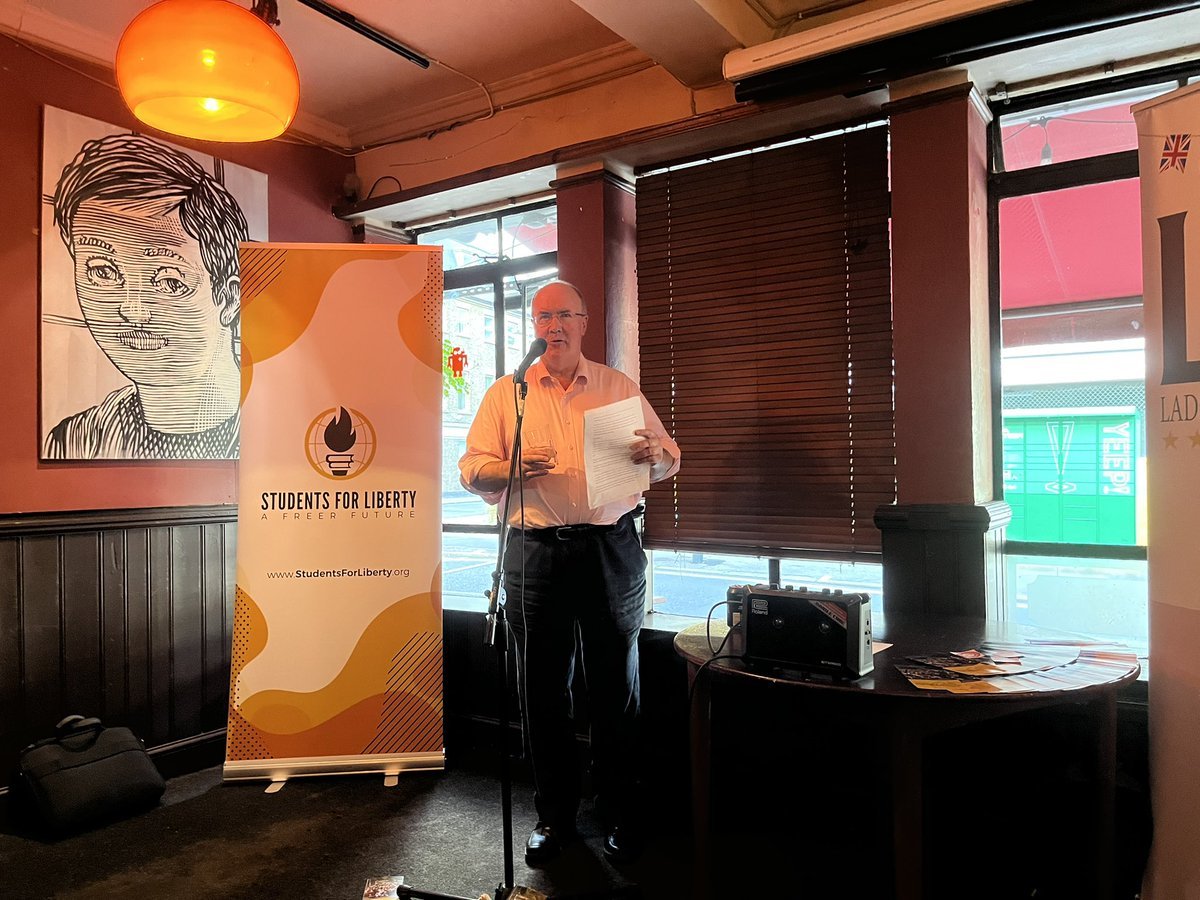The Future of Liberty was a breath of fresh air
‘The Future of Liberty’ event in London on Saturday was a success.
Organised by Students for Liberty UK and Ireland, it was a far cry from the huge conferences and conventions hosted by the parent organisation in the US, or even Students for Liberty Europe.
But I enjoyed it. In fact, the modest nature of the occasion meant I enjoyed it far more than the stage-managed and often hubristic events that often pass for political engagement these days.
The venue – a small room at the back of a pub near London Bridge – was almost full but the event wasn’t without challenges.
Early on one of the organisers had to ask a group of rowdy drinkers, who were sitting directly outside the window, if they would move because the noise they were making was distracting the speakers, and the audience.
Remarkably they did move, but the problems didn’t end there because while the main bar was air-conditioned, our room wasn’t, and the sauna-like conditions were only occasionally relieved when a door was momentarily ajar.
Defending liberty is never easy, though, and I liked the intimate, almost clandestine, nature of an event that was advertised and promoted at relative shortly notice.
There were seven speakers – including me – and we were each asked to speak for 15-20 minutes, with a further five minutes for Q&As.
Kick-starting the event, former Cabinet minister Steve Baker talked about crypto-currency; Mark Littlewood (director, Popular Conservatism) spoke about the impact on democracy of unelected quangos; and his former IEA colleague Chris Snowdon discussed the nanny state and the so-called ‘slippery slope’.
After a break for drinks in the main bar and outside, we returned for part two.
The IEA’s Reem Ibrahim gave a typically spirited speech defending the morality of capitalism, and I had to follow that by talking about (what else?) the war on smoking.
Angelica Walker-Werth (assistant editor, The Objective Standard) then addressed liberty in literature, commenting specifically on two of her favourite books, The Hunger Games and The Handmaid’s Tale.
(Angelica works for the Objective Standard Institute which I had not heard of before, but I enjoyed the subject of her speech because it was a bit different.)
The final speaker, Conservative MP Andrew Rosindell, declared himself a “patriot” and called for those on the “right of centre” to join forces to defeat the current Labour government or face many more years, possibly decades, in opposition.
A true conservative (in my view) he stopped short of saying he might join Reform, but he didn’t rule it out either, which demonstrates to me (a lifelong Conservative voter) the dire straits the party is in.
It also made me reconsider how I might vote in future because I think Andrew’s underlying point was right – the fate of the country is more important than any one party.
Of course, an event like this isn’t going to change overnight the illiberal ‘progressive’ zeitgeist that began under Blair, but I welcome anything that challenges it, and offers solutions, and that’s what ‘The Future of Liberty’ tried to do.
The next step – beyond more events like this – ought to be the establishment of Students for Liberty groups in universities up and down the country.
The Freedom Association attempted this a decade or so ago. Student groups called the Freedom Society were active for several years until, one by one, they gradually fizzled out.
Having addressed Freedom Society groups in Bristol and Cardiff, and been impressed by some of the people I met, Students for Liberty should, perhaps, take on a similar challenge.
It would be long-term project but I’m a huge admirer of Academics for Academic Freedom which was founded as a small group in 2006 and now has a network of groups in the UK and Ireland.
I don’t underestimate the difficulty of establishing and, more important, maintaining such groups, but pub-based events like ‘The Future of Liberty’ (that combine serious discussion with a social element) clearly work.
Think Skeptics in the Pub, although I would argue that Students for Liberty would need to engage in the broader political process as well, instead of being just a talking shop. Several spokesmen (and women!) wouldn’t go amiss, to comment on topical issues.
However, what is really needed is for Students for Liberty to generate not just talking heads but actual politicians.
Talking of which, it’s worth adding (because he mentioned it himself) that Andrew Rosindell was a guest at Forest’s ‘Freedom Up In Smoke’ lunch at Boisdale last month.
We sat him next to Josh Cheshire, who organised ‘The Future of Liberty’ event and, although it wasn’t my intention, it apparently led to Andrew being invited to speak on Saturday.
As for Josh, I first met him in April 2023 when he invited me to take part in a discussion at Edinburgh University where he was a student. (See Smoking – a true test of liberty.)
It was a Sunday and there were only a handful of people at the meeting. I didn’t mind in the least, but I know people who reject opportunities to speak to small audiences because it’s presumably beneath them or they believe it’s not worth their while.
However, another attendee that day (looking a bit bleary-eyed, it’s true) was Max Young, and Max is now news editor of the Guido Fawkes website.
Now, I’m not suggesting the two things are related! What I am suggesting is that no event, however small, is ever a waste of time because you never know who you might meet and what connections you might make.
Some people call it networking. I call it common sense. Either way, and despite the heat, ‘The Future of Liberty’ was breath of fresh air.
See also: Ramblings on ‘The Future of Liberty’ by Charles Amos
Photo: Martin C

